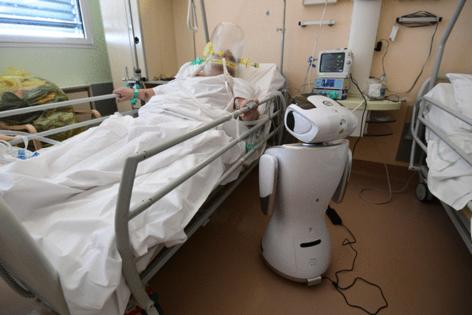Health care is a tough arena for AI to make a difference
Published in Science & Technology News
It was a warp-speed tour of what's happening with artificial intelligence in medicine.
Chris Manrodt, an R&D manager for Philips' medical imaging business in Plymouth, Minnesota, last Friday gave a presentation to several hundred Twin Cities software developers and health care executives and then declared, "I feel like I've said about 50 controversial things, so let me take your questions."
It was the opening session of a daylong gathering of about 1,200 people from the local data science community, the first time in five years that MinneAnalytics, the local association of software developers, staged a conference devoted to health care and medical technology.
"The promise is there. The challenge we face is that our track record kind of sucks," Manrodt said. "I don't want to pick on anybody in particular, but I'll point to this headline: 'AI failed to live up to its potential in the pandemic.'"
In short, don't expect AI to replace doctors.
"The opportunity to turn the data from the administration of health care into the care of patients is actually a much wider gap than I think any of us anticipated back in the middle of the last decade," he said.
Like many people, I'm frequently confused by what I read and hear about AI. Seeing investors pour so much money into companies associated with it gives me fear of missing out, not just with my own investments but simply in understanding what is going on.
My takeaway from Friday's conference is that medtech developers are working on some great devices to bring down the cost of diagnosing illness and disease.
Executives from Twin Cities-based startup VoxCi Health described their device that will detect disease by sensing chemicals in a person's breath — specifically what they exhale. Its initial target market is patients suspected of having lung cancer.
Nashville-based Peerbridge Health promoted a small wearable device that measures cardiac output, potentially replacing the need for people to go to a hospital or clinic for electrocardiograph (ECG) tests.
...continued
©2024 StarTribune. Visit at startribune.com. Distributed by Tribune Content Agency, LLC.







Comments